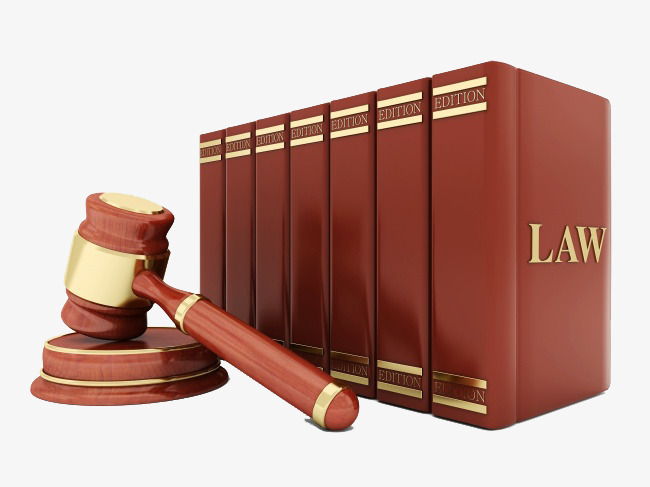What is Company Law in Nigeria? (CAMA 2020)
For purpose of this section, we are going to look at what is Company Law in Nigeria; following the provisions of the Companies and Allied Matters Act (CAMA) 2020, as amended.
This post is designed to further the understanding of our dear readers, who want to register their businesses in Nigeria. In our previous articles, we learnt that a Company can be structured in different ways, such as: a sole proprietorship business, partnerships, Limited Liability Company, among others.
You may also need a website designs, corporate branding, social media marketing, and print advertising strategies to increase your customer base, boost sales and grow your business. Contact us for free consultation if you need help marketing or growing your business in Nigeria.
If you are reading this post and you are not a Nigerian, please connect with your attorney or visit the Department of Corporations in your country for questions about how to start your business registration processes and what this may cost you. Having said that, let’s look at what is a company in Nigerian law.
First,
What is a Company?
A company has been defined as: “An association of persons formed for the purpose of an undertaking or business carried on in the name of the association” – Dictionary of Law [L. B. Curzon].
A Brief about the Nigerian Company Law
The Companies and Allied Matters Act (CAMA), decree of 1990 is the legal framework that stipulates the general principles of the Nigeria company law. It is the legal structure that controls all the activities of companies in Nigeria.
It is this Act that empowers the Corporate Affairs Commission (CAC) for the regulation of business names registration and incorporation of companies, trustee bodies and associations in Nigeria.
Now,
What is a Company in Nigeria Law?
By the provisions of the CAMA, a company is defined as a legal entity or person separate and distinct from its members (Owners) who came together with a common goal or objectives.
In Nigeria, Companies are Classified into 3 Main Groups:
- Unlimited Company
- Company Limited by Shares
- Company Limited by Guarantee
#1. Company Limited by Shares:
This is further divided into private limited company (Ltd) and public limited company (PLC). They are seen as the two major types of companies in Nigeria. This is because every type of company – be it limited by shares, limited by guarantee, or unlimited may be either a private or a public company.
Private Company
A private company is a company owned by one or more individuals, and it’s not allowed to transfer its shares to the public as its articles restrict this power.
Public Company
The public company in its regards can sell its shares, or transfer its right of ownership to the public as a way to raise funds.
Statutory Corporation
The various types of companies in Nigeria as dissented here in this article are those formed and registered by CAMA. They are known as commercial companies; and are different from the Statutory Corporation or public companies owned by the government. These kind of organizations are usually established by Law (statute) enacted by the federal or state legislatures to provide essential social services to the people; where the private investing sector may find unattractive or expensive.
The public company is a more ambitious enterprise and can actually be a structure of great economic power. It raises its capital from the general public and in Law its membership is unlimited.
With the concentration of capital and labour in the public company, it can play a far reaching role in the social-economic development of the society…
— Professor I.A. Ayua SAN.
Some of the Characteristics of Company limited by Shares include:
- Business is carried on here basically for profit making
- Dividends and benefits are paid directly (or to bank account) of members
- The company must have a share capital base
- The memorandum of this company is often approved by CAC
- Liability of members here is by number of shares owned
- Total liability of members could be as low as N500, in case of winding up
- Articles of association compels all shareholders to be members of the company
- In winding up, after all payment is made to creditors and every other debt paid, the remaining assets and profit are shared among members.
#2. Company Limited by Guarantee
Companies limited by guarantee are formed for the purpose of promoting charitable and other similar object and not on business profit.
In most cases, no part of the income and property of the company must be paid directly or indirectly to the members. Such company does not have a share capital base and its memorandum is scrutinized and approved by the Attorney General of the Federation.
Other Characteristics of Company Limited by Guarantee
- Liability here is by guarantee of capital or property. Total liability of any members must not be less 10, 000 in the events of winding up.
- In wound up, the properties remaining after discharge of debts and liabilities must not be distributed among members but transferred to another company with the same object as determined by members.
What is Incorporation of A Company?
The incorporation of a company simply means bringing a company into a corporate existence as a legal entity – whereby the business or the company now exists separate from the ownership, and now can be sued and also sure in its own name.
The main legal consequence of incorporating a business as a limited liability company or so includes the following:
- The company has the right to acquire and dispose property in its name.
- It has perpetual succession. That is, the death of any member does not affect the existence of the company.
- Members are not personally responsible for its debts (limited liability)
- It has right to sued and be sued in its name (Corporate litigates).
- Its shares can easily be transferred from one member to another members or persons.
- It has a better chance or power of borrowing money from financial institutions
- In case of transfer of assets to another company, its employees are not transferable (Contract of Employment)
- Its activities are considered formal and binding on all members
- It must have at least 2 directors (principal officers) who are empowered (by its memorandum and articles of association) to carry out “certain” functions on its behalf.
- As stipulated by CAMA, these individuals must not be less than 18 years or above 70 years old; among other things.
Types of Company Shares
Shares are defined as the units of holding or rights of ownership owned by an investor in a given company. Three common examples are the ordinary shares, nominal share (share capital), preferred shares.
The minimum share capital of a private company in Nigeria is 10, 000 (ten thousand) shares while that of a public company is 500, 000 (five hundred thousand) shares.
However, there is a stipulated share capital for companies with certain objects. A company with foreigners as its first subscribers must have at least 10,000,000 (ten million) shares. And proficiency certificate is required for specialized businesses.
List of CAC Business Registration Requirements:
Depending on the type of your business, the registrations may include meeting some of the following required documents:
- The Business Memorandum and Articles of Association
- The proposed name of the business,
- The proposed (objects) of the business,
- Statement of the authorized share capital
- Form CAC-1, reservation and availability of name
- The names and addresses of the parties (directors) incorporating the company,
- Two (2) recent passport photographs of each director, including valid means of identification.
- Statutory declaration of compliance by a legal practitioner
- The name and address of the company secretary, and
- The address location of the business principal office.
- Filings with the Federal Inland Revenue Service (FIRS) for tax purposes.
- Any other documents or fees as required by the commission to satisfy any law or condition
Wrapping up: What is Company Law in Nigeria?
Usually, a private limited liability company ends with the word LTD while a public limited liability company ends with PLC. While for Companies Limited by Guarantee their names often end with Ltd/Gte. And once you’re incorporated, be sure to follow the rules as required by law.
Every company has a implied power to borrow money or take loans for its business activities. Where the borrowing is in excess of the power of the company, its transaction is void. According to S19 CAMA, a company cannot issue shares in excess of its normal share capital; where subscribers must take up to at least 25%.
Further, the Federal High Court has exclusive jurisdiction in companies’ proceedings; subject to the appellate power of the court of Appeal and the Supreme Court (S650 (1) CAMA). All application arising under the provisions of CAMA may be made by originating summons,
originating motions, or petitions.
The Nigerian law prevents foreign companies from being expropriated by the Government and guarantees them a right to repatriate their profits abroad. However, in order to make indigenous companies to be competitive, there may be legislation on local content participation in some sectors.
Read: Laws And Regulatory Agencies That Govern Foreign Investment In Nigeria
Header Image Source: www.lawpolicy.us











Comments (2)
Good work
This blog post is incredibly insightful! The content is engaging, informative, and easy to understand. I learned so much and can’t wait for more!